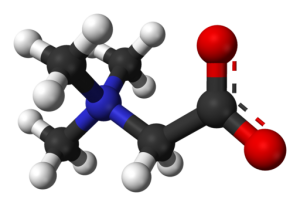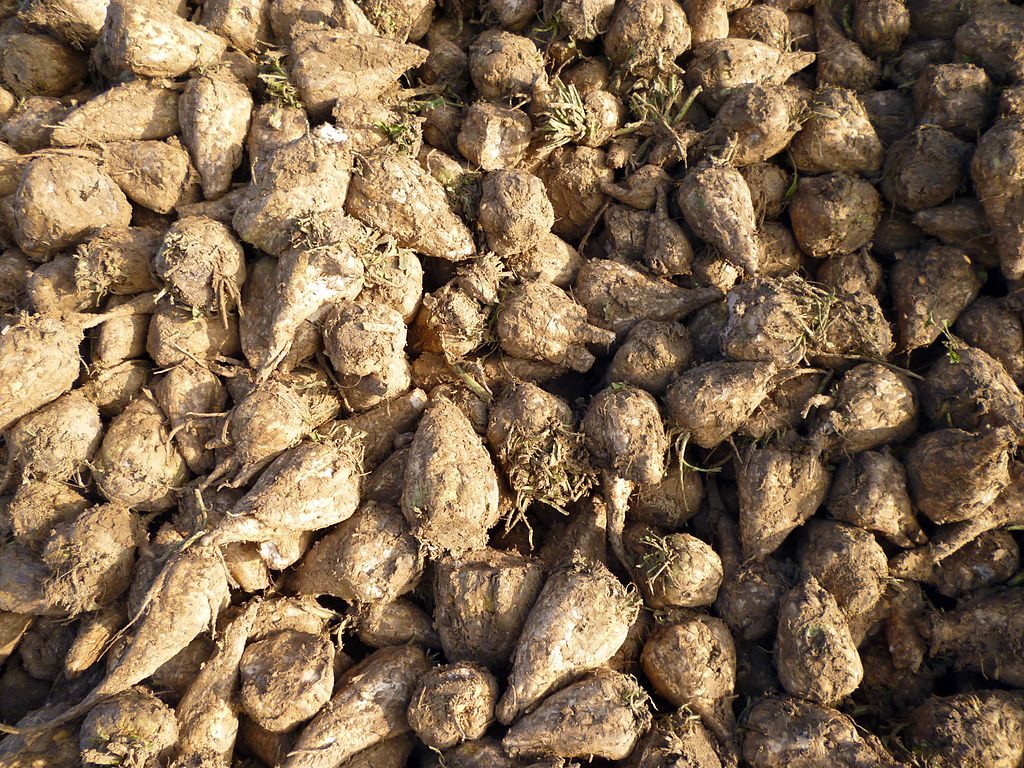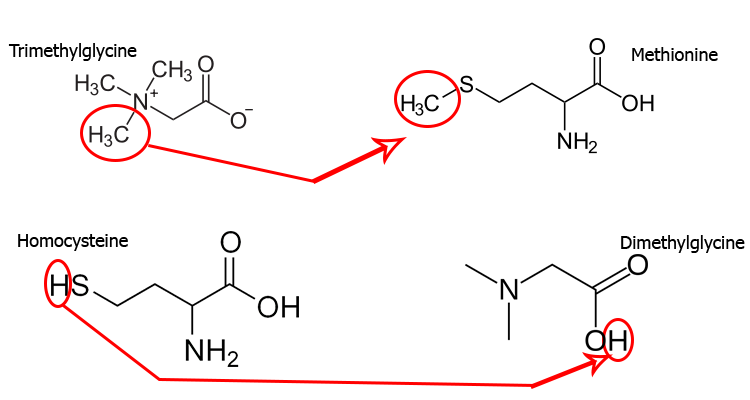Betaine could theoretically have nootropic benefits such as improved mood and neuroprotection, but research is lacking.

- Increasing SAMe. Betaine helps the body produce SAMe, a compound involved in neurotransmitter synthesis that has been shown to help with depression and neurodegenerative conditions.
- Reducing homocysteine. Elevated levels of this amino acid may be linked to depression, Alzheimer’s, and other mental disorders.
Overview
Betaine, better known as trimethylglycine (TMG), is a natural compound closely related to the amino acid glycine. It is present in many foods, most notably wheat, shellfish, spinach, and sugar beets, and the body can also create its own betaine from choline.
Betaine’s major role is to act as an osmolyte and to support methylation – a process that moves methyl groups needed for many important biological functions. Betaine contains a total of 3 methyl groups (hence the name tri-methyl-glycine) that can be utilized by the body.
As a supplement, betaine is mostly used as a digestive aid and a pre-workout ingredient because of its supposed ability to improve exercise performance. However, it is also beginning to be used as a nootropic because it helps produce SAMe, a natural compound particularly involved in synthesizing the neurotransmitters dopamine and serotonin. In addition, betaine might also support brain health by helping reduce homocysteine, elevated levels of which may be involved in depression and other mental disorders.

How Betaine Might Help The Brain
Participating in the methionine cycle
Methylation is a biological process that involves the passing of a methyl group (made of 1 carbon and 3 hydrogen atoms) from one molecule to another. Betaine donates its methyl groups to homocysteine, creating methionine as a result. In turn, this methionine is used to help synthesize S-Adenosyl methionine (SAMe), a compound that donates its own methyl groups to help synthesize several neurotransmitters, most notably serotonin and dopamine. In addition, SAMe also helps support the brain’s antioxidant defenses. 1

Betaine’s Potential Nootropic Uses & Benefits
Betaine is not widely used as a nootropic, but some nootropic enthusiasts claim that it provides benefits such as:
- Alleviating depression and improving mood
- Reducing anxiety and promoting calmness
- Increasing mental energy
- Protecting against neurodegenerative disorders such as Alzheimer’s and Parkinson’s
These effects may be explained by increased production of SAMe (which contributes to increased neurotransmitter levels) and decreased levels of homocysteine. However, betaine has not yet been tested as a nootropic compound in any research studies; as such, these benefits remain theoretical at this time.
Research
Animal Research
Animal studies of betaine indicate that it may:
- Increase SAMe production, as demonstrated by a two-fold increase in liver SAMe levels in mice given a betaine-rich diet for 4 weeks 3 4
- Alleviate high homocysteine levels (hyperhomocysteinemia) in mice 5
- Reduce homocysteine-induced memory impairment and Alzheimer’s-like dysfunction in rats 6
Human Research
Betaine has yet to be tested for its nootropic effects in humans. However, there is research backing its ability to increase SAMe and decrease homocysteine – two key biological mechanisms through which it might provide nootropic benefits.
Single dose of betaine (3 – 6 g) appears to reduce homocysteine levels
This randomized, double-blind study examined the effects of betaine on homocysteine levels. Ten healthy adults were assigned to take 1, 3, or 6 g doses of betaine after a 12-hour fast, and repeated the supplementation two more times so that all participants tried every dose. While all doses increased betaine levels in the blood, only the 3 and 6 g doses lowered blood homocysteine (tHcy) levels, with the 6 g dose having the strongest effect.
- The researchers concluded that “a single dose of orally administered betaine…resulted in lowered plasma tHcy concentrations within 2 h in healthy subjects.” 7
This study examined the use of betaine for children deficient in cystathionine beta-synthase – an enzyme that helps produce methionine. Ten children with the condition were examined for their blood and cerebrospinal levels of homocysteine before and after 3-6 months of betaine monohydrate supplementation (250 mg per kg body weight daily). Betaine supplementation reduced homocysteine levels in the blood in cerebrospinal fluid, and also increased S-adenosylmethionine (SAMe) in the cerebrospinal fluid.
- The researchers concluded that “Cerebrospinal fluid S-adenosylmethionine was normal before treatment and rose significantly with treatment…Betaine is effective in reducing cerebrospinal fluid homocysteine.” 8
Nootropic Dosage
- Studies have used doses as low as 3 g and as high as 15.5 g (assuming the average global body weight of 62 kg)
- Betaine supplements typically come in 650 – 1 g vegetarian capsules of betaine HCL
Available Forms
- Betaine HCL (hydrochloride) capsules – the form most commonly used as a digestive aid
- Trimethylglycine (Betaine Anhydrous) powder – the form preferred for workout-related uses
- It is not yet clear which form (if any) is superior for nootropic use
Supplements in Review Says
- Betaine 0.75 – 1.5 g as a nootropic.
Betaine could theoretically have nootropic properties. It’s possible that betaine’s role in the production of SAMe and reduction of homocysteine could result in nootropic benefits such as improved mood, reduced anxiety, and neuroprotection. However, it’s nootropic effects have yet to be tested.
There is no suggested nootropic dosage of betaine, so it’s best to follow supplement recommendations. If you do want to give betaine a try, we suggest following supplement-recommended doses, which tend to range from 0.45 to 1.5 grams.
Leave a Reply